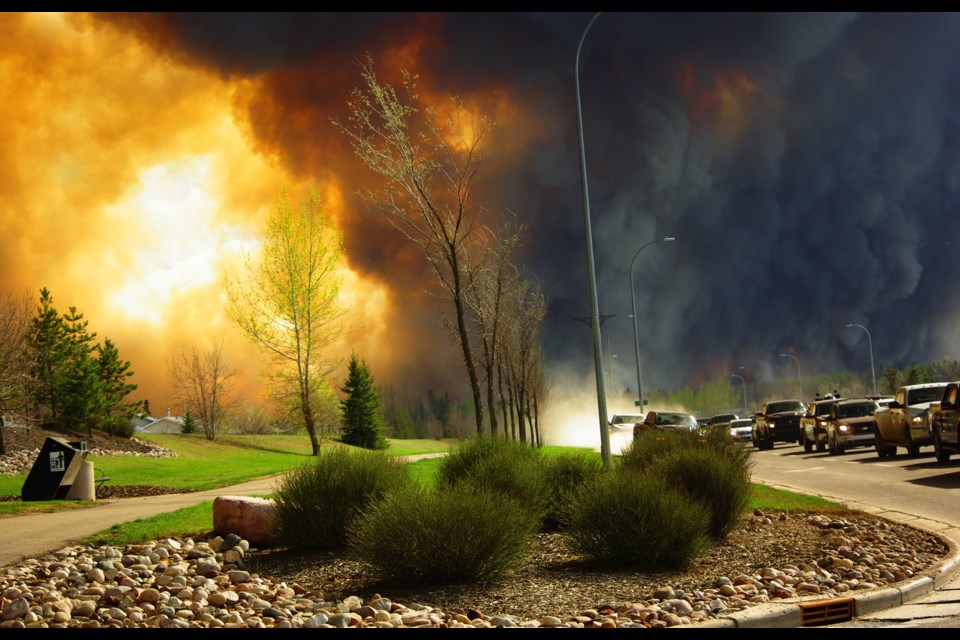Laurentian University PhD student Joe-Felix Bienentreu was among the 88,000 people who escaped an “apocalyptic” wildfire in Fort McMurray, Alta, on Tuesday.
Since then, the wildfire that has consumed much of the city has only expanded, to more than 100,000 hectares, due to warm and dry conditions in northern Alberta.
“I've never seen flames like that in my life,” Bienentreu told Sudbury.com.
He landed in Fort McMurray on May 1, to meet with his co-supervisor, Danna Schock, with Fort McMurray's Keyano College, to prepare for his research on amphibian diseases.
Bienentreu and Schock were supposed to rent a car in Fort McMurray, and drive 15 hours north to Fort Smith, in the Northwest Territories, where they would conduct their research on a fungal disease and virus that affects frogs.
But instead of driving north, the wildfire forced them to head south to Athabasca, Alta.
“I saw the fires were growing like crazy,” Bienentreu said.
Schock's house was in the Abasand neighbourhood of Fort McMurray, which ended up being one of the hardest hit by the fire.
But Bienentreu said they heard Friday her house was still standing, although it probably has some structural damage. They left for Athabasca around 3 p.m. Tuesday afternoon, and arrived in town at 8 a.m. Wednesday. On a normal day the drive would have taken around three hours.
Bienentreu said wildfires are part of the boreal forest's natural cycle, and some species even depend on fires to reproduce.
But too many fires don't give the forest's flora and fauna time to recover, and can lead to irreversible damage.
